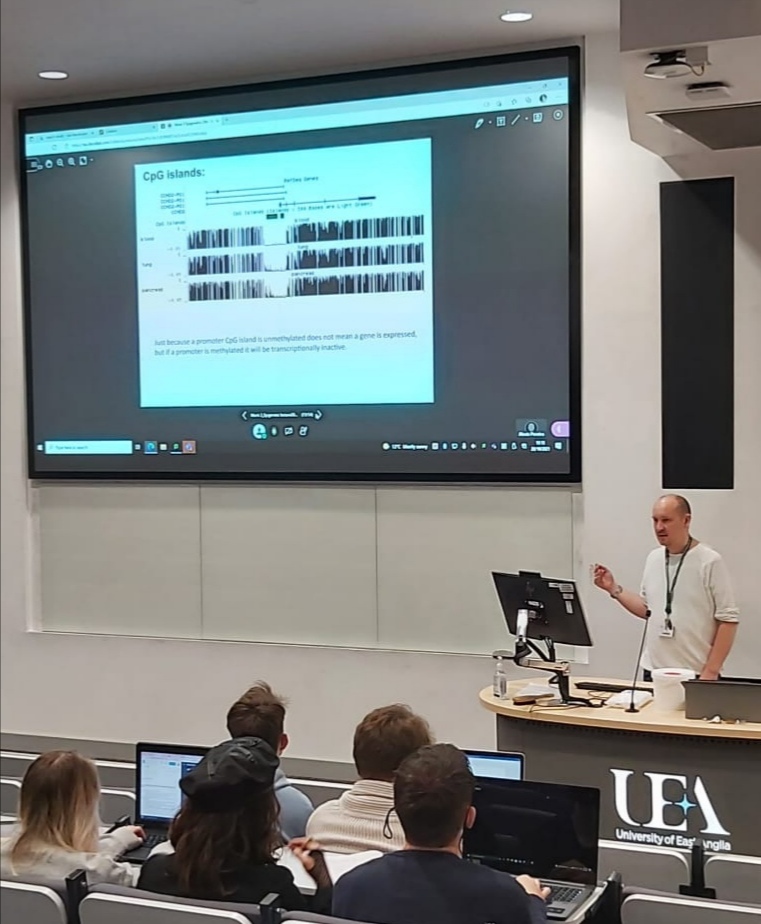October 29, 2021

HUTER lecture by Prof. Dave Monk
Date: October 29th 2021
Prof. Monk has given today a lecture to the Biomedicine students at the University of East Anglia-UEA describing the recent advances in “Reproductive Epigenetics” and discussed some of the cutting-edge work performed in HUTER.
#project #collaboration #europe #uterus #H2020 #EU_H2020_HCA #epigenetics #methylation #arrays #profiling #genome #reproductive-epigenetics #single-cell #scM&T-seq #next-generation-sequencing #NGS #preclampsia #biomedicine
About the Human Uterus Cells Atlas – HUTER
The human uterus is a flagship reproductive organ with profound implications not only in reproduction but also in women ́s health. HUTER can advance the Human Cell Atlas initiative for the exploitation potential in Obstetrics and Gynecology and biomedicine research areas such as Regenerative Medicine or Reproductive Medicine.
The uterus is itself a model for regenerative medicine since (i) endometrial tissue regenerates monthly and its transformation is executed through dynamic changes in states and interactions of multiple cell types, and (ii) myometrial tissue has remarkable regenerative capacity and extensive remodelling throughout pregnancy. Hence, the primary motivation HUTER proposal stems from the need to better understand the human uterus in order to more effectively address uterine diseases that impact women´s health such as myomas or endometriosis and/or might contribute to infertility, infant and maternal mortality and morbidity.
HUTER technological and biological platform will be a crucial resource for the scientific and clinical communities to define the cellular basis of health and disease, allowing the rapid development of new diagnosis and prognosis tools and therapeutic advancements in the field.
Link to the project website here
About Prof. Dave Monk Lab: here

